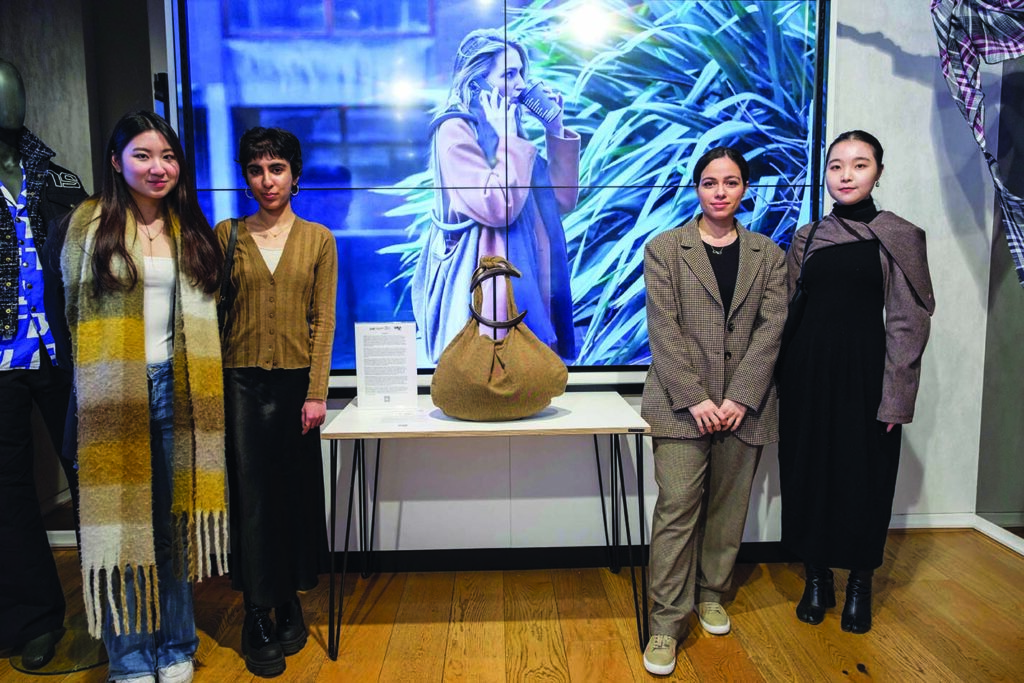
Supply-chain transparency, meet blockchain. Students at the London College of Fashion (LCF) have used the technology to follow the production of fair-trade textile products and create irrefutable provenance of each piece created. They call the process “the future of ethical and sustainable fashion.”
They collaborated with Selyn Fair Trade, an exporter serving rural women in Sri Lanka, and PaperTale, a company focusing on increasing transparency in the fashion and textiles industry through the use of blockchain technology, to gather supply-chain data in real time.
Each phase of production is recorded as steps or “blocks” that create a chain of events, from the dyeing of the fabric to the final stitching of the bag and even payment to the crafter after the piece is completed. When scaled up, the water usage of a manufacturing plant could be recorded with sensors and logged automatically, for example.
“The application of blockchain technology has expanded beyond just cryptocurrency systems,” says Mimi Nguyen, doctoral researcher and associate lecturer at Central Saint Martins, University of the Arts London, on the school’s website. “It is now also used to create authenticity and provenance registries, which has been widely adopted in the digital art world.”
A showcase of the students’ projects featured a modern, stylish bag named the “Sandra” Clapping Bag. Visitors to the launch event were able to scan an NFC tag to see the production process, including the bag’s maker.
 TEXTILES.ORG
TEXTILES.ORG


